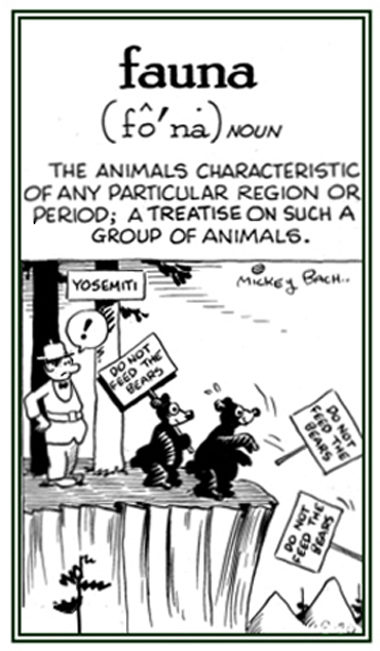-ology, -logy, -ologist, -logist
(Greek: a suffix meaning: to talk, to speak; a branch of knowledge; any science or academic field that ends in -ology which is a variant of -logy; a person who speaks in a certain manner; someone who deals with certain topics or subjects)
The word -ology is a back-formation from the names of certain disciplines. The -logy element basically means "the study of ____". Such words are formed from Greek or Latin roots with the terminal -logy derived from the Greek suffix -λογια (-logia), speaking, from λεγειν (legein), "to speak".
The suffix -ology is considered to be misleading sometimes as when the "o" is actually part of the word stem that receives the -logy ending; such as, bio + logy.
Through the years -ology and -logy have come to mean, "study of" or "science of" and either of these suffixes often utilize the form of -ologist, "one who (whatever the preceding element refers to)".
The examples shown in this unit represent just a small fraction of the many words that exist in various dictionaries.
Ethnozoology also involves the study of the way various cultural groups make use of, interact with, or classify the animals of their environment.
![]() You will find more information about ethnozoology here.
You will find more information about ethnozoology here.
2. The study of human character.
2. Someone who strives to find the causes of diseases via research and various forms of medical investigations.
2. Any study of causes, causation, or causality; as in philosophy, biology, or physics.
3. The study of the causes of diseases or medical disorders.
4. The cause or origin of a disease.
The word etiology is primarily used in medicine, where it refers to the science that deals with the causes or origins of diseases including the factors which produce or predispose toward a certain disease or disorder.
Today in medicine one often hears, or reads: "The etiology is unknown"; meaning: "We don't know the cause."
Aetiology is the preferred spelling in some countries, including the UK, whereas etiology, without an "a", is dominant in the United States.
By comparing words in related languages, people may learn about their shared parent languages and in this way, some word roots have been found which can be traced all the way back to the origin of the Indo-European language family.
An etymologist is a scholar who knows the difference between an etymologist and an entomologist.
2. Tracing the transmissions of words from one language to another and identifying their relationships in other languages, and reconstructing their ancestral forms when possible: The English language has borrowed many roots from Greek and Latin; so, one important aspect of historical linguistics involves the etymology of words that come from those classical languages as well as some other contributing sources; such as, French, German, Anglo-Saxon, Scandinavian, Indo-European, etc.
Through old texts and comparisons with other languages, etymology is an effort to reconstruct the history of words; when they entered a language, from what sources, and how their forms and meanings have changed.
2. One who studies extraterrestrial life.
2. The study of substances secreted externally by individual organisms which effect integration of a group of organisms.



